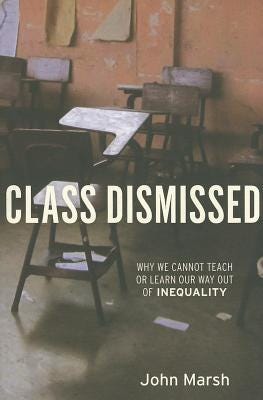Digest, 6/5/2021: Lawless, Winged, and Unconfined
the sixth weekly digest post

I have this tangled relationship with “directed” reading, for lack of a better term. Austin Kleon and Alan Jacobs say read at whim, and I trust the two of them a great deal and understand their case. At the same time I miss taking a curriculum. One of the many things I miss about being a student is being forced to read things I would not have read otherwise. One, because you do discover things that you simply enjoy a great deal that you wouldn’t have discovered on your own. Two, because I think it’s important to be exposed to books that you don’t enjoy; they are learning experiences too. You wouldn’t expect someone to enjoy every part of training for a marathon, nor should you imagine that becoming more informed and more alive to the world through reading should all be fun too. Of course, the problem with wanting more directed reading is that, if you’re the one doing the directing, the idea is kind of moot.
Well, if I can’t take a curriculum, I can at least be more intentional. I read a lot and I enjoy it a great deal, though I go through a never-ending cycle of reading compulsively and constantly, followed by periods of having to force myself to sit down and say “I’m reading for the next two hours and I will not check my phone.” I’m not concerned about my rate of reading, but I am a little worried about my breadth of reading. And I have the luxury now of being able to plausibly say that, like it was back in grad school, reading books is a big part of my profession. So I’m gonna try and do a few reading “projects” and see how it goes. First up is Sheila Heti. This might seem a little random but it’s just a name that’s been vaguely on my list for a long time that I’ve never gotten around to. She’s in the same orbit as a lot of the fiction writers I’ve been reading in the past decade or so, and she also has the advantage of being divisive - she’s critically acclaimed but has a lot of detractors. I personally know several people who love her and several who just can’t stand her work. She seems like a writer who inspires Big Opinions, which I like. (And which makes writing potential blog posts easier.) So I’ve ordered The Middle Stories, How Should a Person Be?, and Motherhood.
I am particularly jazzed for the second because it apparently involves extensive interviews with Margaux Williamson, who was the inspiration for one of my favorite songs by one of my favorite bands:
I imagine I will write one big post about the three books (if I get through them) rather than separate reviews. This will, therefore, be some time down the line. Interested to see how it goes.
About that anxiety of the holes we all have in our personal libraries, mental and physical: no on in the world, save perhaps the late Harold Bloom, has ever been well-read enough. That is, all of us have gaps in our book knowledge, and these will often seem inscrutable to others. I myself sometimes feel like saying, “You’ve read X, how could you have never read Y?” But it just don’t work like that. I’ve never read The Aeneid, The Picture of Dorian Gray, or Jane Eyre. Nor Don Quixote, As I Lay Dying, or Tropic of Cancer. I’ve never read any of the novels of DH Lawrence or Charles Baudelaire. I’ve read and loved To the Lighthouse and Robinson Crusoe but never Mrs. Dalloway or Moll Flanders. I’ve read Jonathan Safran Foer but not Jonathan Lethem. I’ve read Eudora Welty but not Edith Warton, Station Eleven but not A Little Life. I’ve read all of Joan Didion’s nonfiction books save the two most recent ones, but I never finished one of her novels. I’ve read an awful lot of Pauline Kael but the only thing I’ve ever read from Renata Adler was her (enjoyable) takedown of Pauline Kael. I’ve read reams of trashy D&D-branded fantasy but never a word of George RR Martin, and that’s not about to change. I’ve read the “Thrawn Trilogy” but never Ender’s Game. Not a word of Phillip Roth but plenty of Saul Bellow; The Bluest Eye, but never Beloved. And if I was in a position to do it all again I’m quite sure this litany would be very different.
That’s just how reading works. And of course the same is true of movies and music. But it takes a lot longer to get through a book than a movie or album, and there are (different kinds of) status anxieties with books, so it hits different. Now that I just had my 40th birthday on Wednesday, I start to worry more about what I’ve always wanted to read and will never get around to.
This Week’s Posts
Let me apologize for the lack of a subscriber-only post this week - I shuffled some things around at the last minute and simply forgot. I’ll post two things for subscribers next week to make up for it.
Monday, 5/31/2021 - They Tell Me the Cruelty is the Point
My response to a despicable piece in The New Republic arguing that Vietnam veterans who fought for health care, mental health services, and recognition were just angry white men doing grievance politics. Angry writing about a target that I truly believe deserves every word and more. A lot of people tried to discipline me about this one, but many loved it, including Vietnam vets and their children. I will not be disciplined. Controversy points: Media 7, Readers 3
Tuesday, 6/1/2021 - What Do We Do With Education Research?
A rundown of why good education research and deriving responsible conclusions from it can be so hard, along with some gentle recommendations for how things could potentially get better. Controversy points: 2
Wednesday, 6/2/2021 - Review: Jenny Offill's Weather
My review of Jenny Offill’s latest novel, the beautiful and wise Weather. I loved it and I admire her as much as any novelist working today. I enjoy writing this sort of thing maybe more than any other, and this is my favorite thing I’ve written in awhile, so of course nobody read it. Oh well. Controversy points: 1
Thursday, 6/3/2021 - At the Heart of It All
A somewhat abstract critique of our current political fixation on preventing harm, and the inherent limitations of that effort in a world that is and will remain broken. Controversy points: 5
Friday, 6/4/2021 - Those Who Didn’t Make the List
An argument that Jews (and by implication some other groups) will inevitably suffer in our new world of actuarial diversity and indemnity-avoiding inclusion, leading to systematic disadvantages in college admissions and hiring. A lot of people really didn’t like this one. Some of them were pretty convincing and some not. There was a lot of people who couldn’t imagine that Jews could end up being more marginalized than white people in general, and that is… a little disturbing. Controversy points: 8
From the Archives
I wrote this piece on the rise in international students in the American university almost a decade ago. I think much of it holds up. There’s a fundamental tension within the subject. Many people, like me, think an increase of international students helps universities fulfill some of their essential functions, including exposing domestic students to diverse backgrounds and identities as well as broadening opportunities for students from the rest of the world. But the behavior of universities is dictated by far less rosy motives: international students generally pay through the nose. Purdue had a giant Chinese population while I was there; virtually all of the undergraduates were wealthy. Now, there are greater enrollment pressures on admissions departments that there weren’t when I was a grad student. (One more time: admissions departments are revenue-generation units before they’re anything else.) My prediction is more and more pressure to admit students with marginal English skills and less-than-stellar academic records, which will create problems that will mostly fall on the untenured.
While marking and addressing local errors is important, I often will take a minimal approach to this kind of error correction in my grading, for domestic and international students alike. I often let repeated minor errors go, after an initial marking, out of a conviction that continually marking the same errors will frustrate students, and ultimately do more harm than good….
To my surprise, several of my own international students in the past have asked me not to skip over these kind of errors. Their rationale is simple: they want to be perceived as educated people, and writing free of formal errors is a part of that. This is a totally reasonable desire, and I take it very seriously. I also have to balance that desire with what I perceive to be the greater interests of the students; with the needs of my class; with the goals, means, and outcomes of Purdue’s introductory composition program; and with the requirements of the university and its many constituent academic departments. Balancing these various concerns is an exercise that would be familiar to most college instructors working today.
Song of the Week
Ciccone Youth = Sonic Youth + Mike Watt of the Minutemen + J. Mascis of Dinosaur Jr., so yeah it’s a great album. And named after Madonna.
Substack of the Week
Ebla to Ebooks: The Preservation and Annihilation of Memory by Kathleen McCook
Here’s an interesting one. Libraries scholar (and reader of this Substack!) McCook has put together a newsletter that concerns, as the About section says, “The annihilation of books, ideas, and free expression is the topic of this Substack.” The posts are mostly brief, and serve as references or citations to individual expressions of the broad project of preserving knowledge and saving it from loss and censorship. For example, here’s a post about a stockpile of Qurans in Pakistan; here’s one about the burning of a lot of punk rock memorabilia. The newsletter is updated almost every day, and since each post is brief it’s easy to poke around randomly throughout the archive. There’s also a ton of references if you want to know more - she is a librarian, after all. Check it out.
Book Recommendation
Class Dismissed: Why We Can’t Teach or Learn Our Way Out of Inequality, John Marsh, 2011
One of the core arguments of my book, and of my education work, is that the common assumption that education can solve our economic problems simply has no basis in reality. In fact, it’s never been clear how this is supposed to work in theory. Whatever that theoretical case, it certainly doesn’t seem to have worked: as we’ve become an immensely more educated nation in the past several years, working age poverty has stayed flat or even slightly grown, income inequality has exploded, and the divide between productivity and wage growth has widened. And this is not some theoretical argument here; the idea that education is what powers economic improvement is voiced at the highest levels of policy, including from every president since Reagan.
Almost a decade before my book came out, John Marsh put together a compelling and concise argument for why none of this adds up. It’s data-driven but also includes some really sharp considerations of the reasons why this philosophy grew in the first place - including America’s quasi-religious attachment to self-improvement and the fact that all of this distracts from the possibility of large-scale redistribution.
Comment of the Week
My father was a member of Veterans for Peace as well. Both my father and my uncle signed up "voluntarily" to avoid being drafted - exactly the scenario that Freddie wrote about. My father (who at one point was homeless) passed away last year. My uncle has permanent lung damage from Agent Orange and still gets visibly anxious when he hears a helicopter. Thank you Freddie for this article. I hope others pile on and trash Lehmann's revisionist history. - Josie
That’s a rap! Difference and solidarity on Monday, and I think (I hope) my big appeal to YIMBY’s post at last. Cheers.




Don’t worry about lack of subscriber only posts. I pay to support your writing, not for exclusive content. I want all your stuff to be widely read, even when I disagree. I’m hoping others feel the same.
Thank you for naming my "Ebla to E-Books: The Preservation and Annihilation of Memory" as "Substack of the Week." All of a sudden a whole lot of people subscribed and I didn't know why. I mean it doubled (!) the number of people subscribing! I'm so glad you like the footnotes.